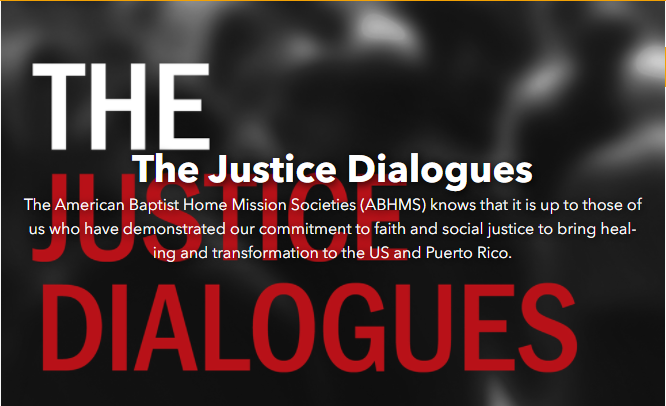VALLEY FORGE, PA (ABNS 12/6/21)—“Faith, Hope, Love and Mental Health” was the topic of the latest edition of American Baptist Home Mission Societies’ (ABHMS) The Justice Dialogues held online Wednesday.
“The holiday season can be especially challenging for people with mental health issues and their families,” said the Rev. Lisa Harris Lee, ABHMS’ director of Healing and Transforming Communities. “The pandemic has made it more acute.”
Discussion was facilitated by Curtis Ramsey-Lucas, editor of ABHMS’ The Christian Citizen, Judson Press author and Pathways to Promise board member.
The discussion featured The Rev. Jermine Alberty, executive director of Pathways to Promise, St. Louis, Mo., which, according to its website, “is an interfaith assistance and resource center that provides virtual and in-person support to faith, spiritual and non-spiritual communities.” Their work focuses on creating welcoming and supportive caring communities for persons with mental health challenges, disabilities, and addictions and those who care for them.
In addition, Alberty is a national trainer for Mental Health First Aid USA and co-author of the book “Bottled-up Inside: African American Teens and Depression.”
Among the most important things that pastors can do, Alberty said, is to become educated about mental health and to change their messaging from the pulpit. References to mental health diagnoses should be included in prayers, litanies, songs and messages that promote hope.
The Bible can be used to perpetuate the stigma of mental illness, he said, referring, as an example, to the scripture “Be anxious for nothing” (Philippians 4:6).
“Scripture that brings joy to some people can bring despair to others,” he noted. A person with mental illness can wonder if God is not hearing his or her prayers or if he or she is a “bad” person.
When asked about the steps a church must take to create a mental health ministry, Alberty recommended a “wellness ministry” that deals with more than mental health issues. If the ministry is all-inclusive, no one in the church will feel like it is only for “the other.”
The process should include conducting a climate survey to discover the congregation’s perception of mental illness and how to address it. “Then say, ‘Here is what we found and what we’re going to do,’” he said.
The final step in creating this ministry is to sustain it, Alberty said, noting that mental health issues don’t simply disappear. “It’s not enough to have a May event and say, ‘We did it.’”
Noting that companionship is important in the life of someone with mental illness, Alberty outlined its aspects:
- Offer hospitality that is trauma-informed. Ask people how they would like to be greeted since, for some people, a hug is inappropriate. Introduce yourself by first name only, dropping your title and last name.
- Listen to a person’s soul story.
- Walk side by side with someone, without pushing him or her. Remember that you are not trying to fix the situation but simply support the person.
- Enter into covenant with the person. Create a circle of support and realize that the recovery journey is different for all people.
ABHMS will continue to convene The Justice Dialogues for open discussion, reflection and encouragement as safe and brave spaces for activists and advocates to be in community with each other, tell our stories, receive encouragement, provide updates and offer prayers to feel fortified in our work together.
The next edition of The Justice Dialogues will be held on Jan. 26, 2022.
American Baptist Home Mission Societies partners with American Baptists to promote Christian faith, cultivate Christ-centered leaders and disciples, and bring healing and transformation to communities across the United States and Puerto Rico.
American Baptist Churches USA is one of the most diverse Christian denominations today, with approximately 5,000 congregations comprised of 1.3 million members, across the United States and Puerto Rico, all engaged in God’s mission around the world.


